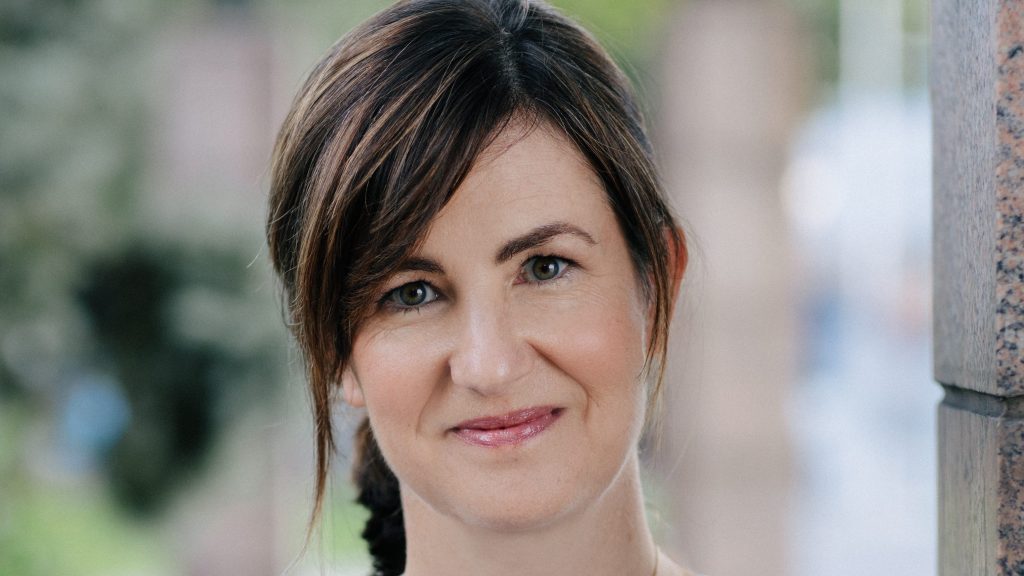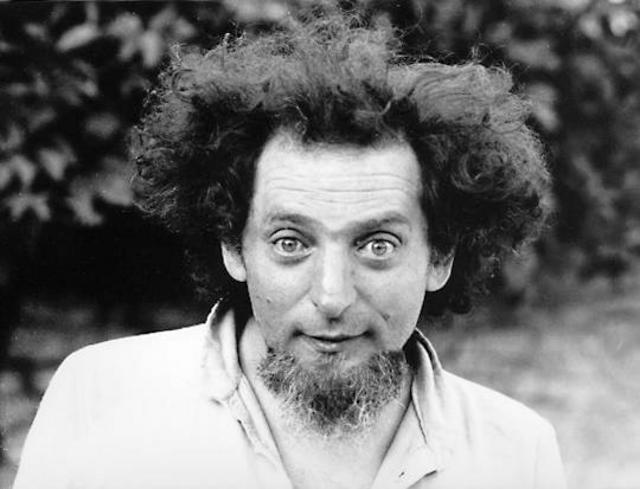Andrew Wright’s review of Jessica Francis Kane’s short story collection, Bending Heaven, first appeared in Michigan Quarterly Review’s Winter 2004 issue.
Jessica Francis Kane’s new novel, Rules For Visiting, out May 2019, is a woman’s exploration of friendship in the digital age. Jessica Francis Kane reads on Tuesday, May 21, at 7:00pm, at Literati Bookstore in Ann Arbor.

In this collection the social scale is high and expensive: in London one of the couples stays at the Royal Lancaster Hotel, and Potomac Run, a variation on the Homestead in Virginia, can be patronized only by the well-heeled. Alcoholism, incipient or rampant, but always genteel, appears again and again, perhaps too patently a characterological tic. These people suffer, to be sure, but always in style; they are incapable of arousing Hell.
“How to Become a Publicist” takes place in the forecourts of Hell, the publishing world of New York. The narrator, who drinks too much now and again, becomes a publicist rather than—her secret ambition—an editor in a publishing firm. Nonetheless, she makes her way and is regarded by her superiors as “presentable.” But she founders on the publicity for a first novel and on a book tour succumbs to the temptation to overindulge her anxious need for alcohol. We sense her disillusionment in her wooly thinking about the terms she must use: “Promotional words begin to annoy me, especially luminous, stunning, mesmerizing. Colossal, odyssey, tour de force. Ambitious, exhilarating, heartbreaking, breathtaking (in fact all words with heart or breath in them). The worst is when they appear together in press releases and jacket copy. Luminously mesmerizing, for example.” She becomes frustrated, angry, and nervous—also homesick. “My parents know nothing about this. When they call, I tell them I love New York and am doing just fine.” This is a story that has a satisfying shape, and a jumpy prose style that mimics the distracted state of the commercial world itself. It’s something of a virtuoso performance in a collection that is more often graceful and analytical in its prose.
“Paris,” is a short but intense account of a wife’s effort to free herself from a smothering relationship with her husband. It is subtle, the agony of her inchoate desire to be free of her calm and brilliant husband, not necessarily forever but for a time. She says that rather than return home she would like to stay in Paris for a week or two “just to get my bearings.” What makes this story stand out is her incapacity when faced by her husband to use the words she intends—affliction for affinity, unmediated for unmitigated. Thus with a brilliant stroke the author lays bear the unbearable. As Paris becomes her alma mater, she loses control of the language of her former life, and with it the psychological foundation of her former culture.
The same kind of self-division and psychological doubling appears in “Exposure.” The central figure, Ellen, is a well-known writer, who has a fascinating dream that raises the question of her husband’s infidelity by way of an intricately described not-quite-verisimilar version of him and a woman with perfect breasts. But the confusion of the dream is linked, rather mysteriously, to her disinclination, or something much stronger, to having her photograph taken for use on the dust jacket of her forthcoming book and for the publicity in connection with promoting it. Ellen is horrified by the photograph. The point appears to be that the photograph is not the person she would like to be, not the person she thinks of herself as; but the extremity of her reaction reveals the fissures of a life-crisis. Seemingly one of life’s indisputable winners, she undergoes an inward catastrophe worthy of one of Maura Stanton’s characters, or, for that matter, one of Jim Daniels’s losers.
There is mixed success when Kane moves into Jamesian territory, tracking the faultlines of marital discord and betrayal among people of leisure. “The Trailing Spouse” is a puzzling account of a woman who must look after herself when her husband is transferred to London for a period of years. It is puzzling because Tessa, the wife, is depicted as more than a little lonely and disoriented as a resident there. She is not ill-educated and she is obviously well off: she and her husband have a flat in Chelsea overlooking the river—and it would be credible if she were a monolingual wife whose husband had been transferred to a foreign city in which she did not speak the language. But London? She and other wives of the men employed by the same company as her husband consider themselves to be expatriates and have little to do beyond joining together to do some sightseeing. Perhaps the story would be more credible if something were made of the relationship of Tessa and her husband beyond the indication that they are apparently happy. When the pair go to Paris with a couple of friends, Tessa is moved—tempted?—by a crepe seller. Further along there is the merest hint that her husband has had something of an affair with the Russian woman employed as their housekeeper, who eventually is discharged because she begins to take things from the flat. And the only other indication that sex exists is that Tessa becomes pregnant and the couple moves back to New York so that she can have her baby there. Near the end is Tessa’s recollection of the sound of the lament of a male peacock that she had learned was a warning against marauders: she had made a tape recording of the peacock, and, hearing the tape now, she has a sense—of what? Foreboding? No explanation is forthcoming.
“The Arnold Proof,” on the other hand, is an ample story, complex in construction and insightful in its depiction of a mathematician with marital troubles. It is well worth the price of the collection. It concerns the obsessive search on the part of a professor for proof of a mathematics problem, the Riemann Hypothesis. From the very beginning of the narration, Professor Arnold is so intensely absorbed that he does not cope successfully with the real world; twice in the same day he calls an end to his classes well before the end of the hour. For five years he has been working on the proof that will establish him at last, and for all time, as one of the leading mathematicians in the country and also in the world. In his office he refuses to be interrupted but nevertheless is telephoned by his bored and angry wife. The tension between them is founded on her ignorance of what he is doing—she had majored in English in college.
He had tried to share the beauty of Pythagoras’s belief that numbers represented abstract notions such as male and female, love and marriage, opportunity and justice. Unfortunately, she was watering the garden and remained unmoved.
At the end of the day and beyond—quite late to return home—he goes the long way around, feeling that he may thus clear his head, but when he stops for coffee he becomes less than rational. He sees a friend to whom he says that he is very near to proving the Riemann Hypothesis. And after the friend leaves he sees or rather has a vision of the parking lot and surroundings in double and reckons that he has now come upon the momentous discovery of the arrow of time, which in turn will make possible the demonstration of his proof; the sense of confusion and certainty coalesce here with wonderful believability. Does Professor Arnold’s delusion lead him finally astray? Are we reading an account of the descent into madness or following a scientific explorer into the blinding world of the truth?…

Read more of Andrew Wright’s review of Jessica Francis Kane’s Bending Heaven in our Archives.




